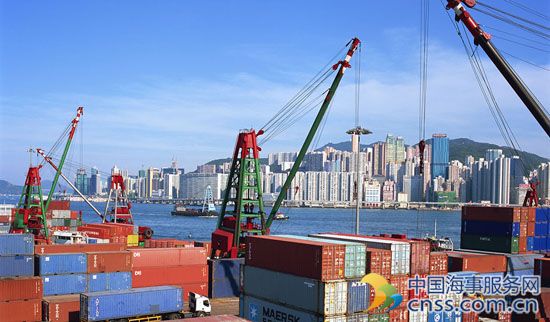Italy’s Giuseppe Bottiglieri Seeks Protection From Creditors

Italian cargo shipowner Giuseppe Bottiglieri Shipping Co. SpA is seeking protection from creditors as it works to restructure its business, the latest casualty of an industrywide slump.
In a statement, the closely held Naples company cited “the unprecedented world freight market crisis” that has weighed on profits across the industry. Giuseppe Bottiglieri said it has prepared a new business and financial plan that is now under discussion with creditors.
Giuseppe Bottiglieri operates 11 dry-bulk carriers and four petroleum product tankers with an estimated value of $190 million. It wasn’t known how many were at sea or the value of the cargo they moved.
The company expects to continue operating while it talks with creditors and that as of now “no enforcement proceedings of whatsoever nature against the company have been made by financial creditors, suppliers, charterers, crew, employees or by any other creditor.”
Executives at the company couldn’t be reached Friday for further comment. News of its move was earlier reported by industry publication Lloyd’s List.
A bankruptcy filing would be the first such move by a major shipping company since South Korea’s Hanjin Shipping Co. last year. Hanjin, at one point the world’s seventh-biggest container operator, is currently being liquidated. Its bankruptcy left $14 billion worth of cargo stranded at sea for months as creditors seized ships in ports around the world. Shipping executives said any disruption from Giuseppe Bottiglieri would be much smaller.
The shipping industry is battling the worst down cycle in 30 years, thanks to overcapacity and a drop in freight rates. Dozens of operators are seeking to restructure debts, merge with bigger companies or sell assets to stay above water, but outright bankruptcy filings are rare.
The Baltic Dry Index, which measures the cost of moving commodities like coal, grain and iron ore, is hovering around 940 points after hitting a two-year high of 1,232 in November and an all-time low of 292 last February. At its peak, before the financial crisis, the index reached 11,000 points.
Dry-bulk shippers were hurt after China, the world’s biggest commodities importer, began shifting away from heavy industry as its main growth driver.
Source: Wall Street Journal
HEADLINES
- Do shipping markets want Biden or Trump for the win?
- All 18 crew safe after fire on Japanese-owned tanker off Singapore
- Singapore launching $44m co-investment initiative for maritime tech start-ups
- Cosco debuts Global Shipping Industry Chain Cooperation Initiative
- US warns of more shipping sanctions
- China continues seaport consolidation as Dalian offer goes unconditional